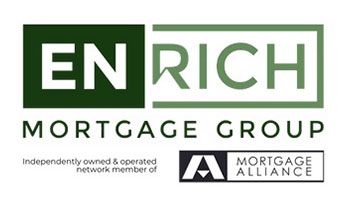Frequently Asked Questions
Answers To Your Questions
What is a mortgage?
A mortgage is a loan provided by a financial institution to help individuals or families purchase a property. It is secured by the property itself, and the borrower makes regular payments (including principal and interest) over a predetermined period until the loan is fully repaid.
How does the mortgage pre-approval process work?
During the mortgage pre-approval process, a lender evaluates your financial situation, including your credit score, income, and debts, to determine how much they are willing to lend you. This gives you an estimate of your borrowing capacity and can help you in your home search. Pre-approvals are typically valid for a certain period, usually around 90 days.
What is mortgage default insurance, and when is it required?
Mortgage default insurance, also known as mortgage insurance, is required for homebuyers with a down payment of less than 20% of the purchase price. This insurance protects the lender in case the borrower defaults on the mortgage. It is provided by mortgage insurance providers like Canada Mortgage and Housing Corporation (CMHC) or Genworth Canada.
What is a mortgage term, and how does it affect my mortgage?
A mortgage term refers to the length of time you commit to a specific mortgage agreement with a lender. It can range from 1 to 10 years in Canada. During the term, you will have a set interest rate and specific conditions. At the end of the term, you can choose to renew your mortgage, negotiate new terms, or pay off the remaining balance.
What is the difference between a fixed-rate and a variable-rate mortgage?
A fixed-rate mortgage has an interest rate that remains constant throughout the term, providing predictable monthly payments. On the other hand, a variable-rate mortgage has an interest rate that can fluctuate with changes in the prime lending rate, potentially affecting your monthly payments.
What is a mortgage down payment, and how much do I need?
A mortgage down payment is the initial amount you pay towards the purchase price of a property. The minimum down payment requirement in Canada is 5% of the purchase price for properties up to $500,000. For properties above $500,000, a 10% down payment is required on the portion exceeding $500,000. A higher down payment can reduce the amount you need to borrow and may affect mortgage insurance requirements.
What are closing costs, and what should I expect?
Closing costs are additional expenses associated with finalizing the purchase of a property and securing a mortgage. They can include legal fees, home appraisal fees, land transfer taxes, title insurance, and other administrative costs. It is important to budget for these costs, as they typically range from 1.5% to 4% of the purchase price.
What is mortgage prepayment, and can I make extra payments towards my mortgage?
Mortgage prepayment refers to making additional payments towards your mortgage principal, either through lump-sum payments or increasing your regular payment amount. Many mortgages allow for prepayment privileges, which can help you pay off your mortgage faster and potentially save on interest costs. However, specific prepayment options can vary, so it's essential to review your mortgage terms or consult with your lender.
Can I transfer my mortgage to another lender?
Yes, it is possible to transfer your mortgage to another lender. This is known as mortgage refinancing or mortgage portability. By transferring your mortgage, you may be able to take advantage of better interest rates, terms, or features offered by another lender. However, there may be costs associated with transferring, such as discharge fees or legal fees, so it's essential to consider these factors before making a decision.
What is the difference between going to my bank and using a mortgage broker?
The difference lies in the options and convenience. When you go to your bank, you are limited to their mortgage products. In contrast, a mortgage broker offers access to various lenders and can find the best mortgage solution tailored to your needs. They can negotiate better rates and terms and provide unbiased advice. Ultimately, a mortgage broker gives you more choice and saves you time and effort in finding the right mortgage.
Stay Informed with Exclusive Mortgage Insights and Offers
Sign up for our newsletter to stay ahead of the curve with exclusive mortgage insights, tips, and special offers. Our newsletter is your go-to resource for industry updates, expert advice, and valuable information to help you make informed decisions about your mortgage. Don't miss out on the latest trends and opportunities in the mortgage market. Subscribe now and gain a competitive edge in managing your mortgage effectively.
